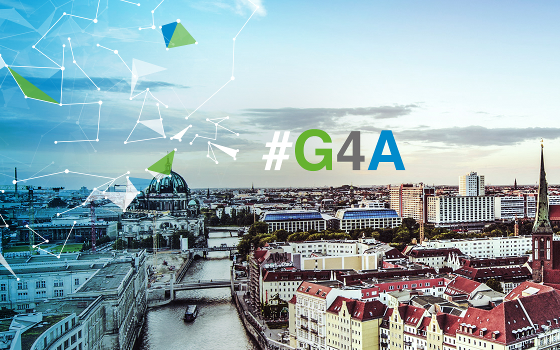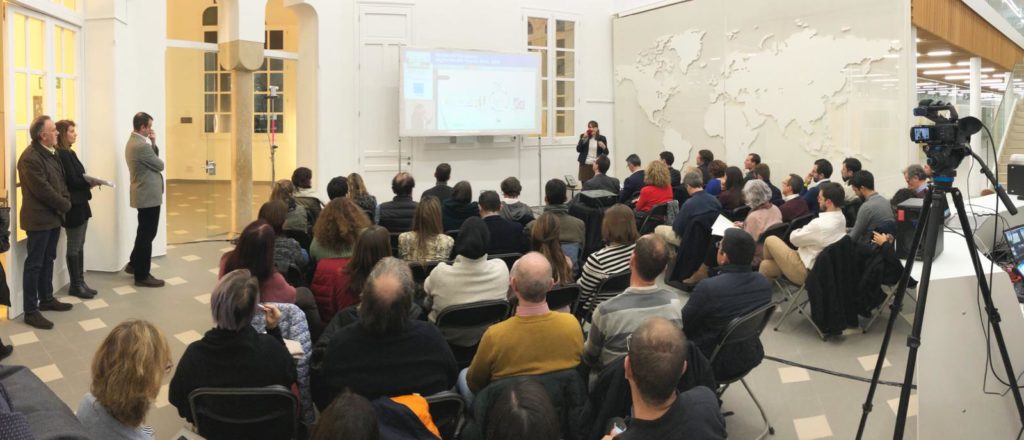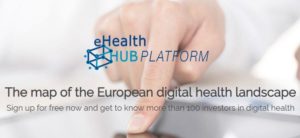Aline Noizet is passionate about digital health innovation, connecting the right people, improving patients’ lives, supporting healthcare professionals, and helping healthcare startups scale up. She has a special knack for business development, innovation & trend scouting, and building community.
Today, Aline is working on projects like eHealth Hub, involving innovation and startups. She is also a Consultant at Braincats, Health Expert for the Startup Colors team, and Ambassador for Digital Health Today and FTR4H. In her free time, she serves as the General Manager of Health 2.0 España.
You previously managed Bayer’s Grants4Apps Accelerator Programs in Barcelona, New York, and Berlin.
In your opinion, what are the pros and cons to innovating as a startup or SME vs. within the corporate environment?
It’s perfectly doable for a startup to innovate on their own, but taking part in a corporate accelerator has several advantages:
- The corporation is a potential client. Startups and corporates get to know each other over a few months, and can explore potential synergies. It’s like dating before starting a serious relationship.
- You have access to experts in the company, who share their knowledge and guide you through the complex organizational system.
- Startups can refine their knowledge and deepen their understanding of how things work (i.e., the drug development cycle, or diseases in the case of a pharma), which help the startup come up with new or improved applications for their solution. Meeting with different departments from the corporation also help you explore new directions for product development and collaboration.
Being associated with a corporation also has collateral advantages:
- Investors are more willing to engage in discussions with companies previously validated by corporates. It’s like a stamp of quality.
- Access to the corporation’s vast network — for instance, pharma and insurers are connected to many hospitals, useful for clinical validation or to acquire as customers later on.

However, keep in mind:
- Taking part in a corporate accelerator doesn’t mean you have a deal.
- Startups need to have a clear roadmap for their company, and view the acceleration period as a milestone within the big picture — not as an end goal. It’s a risk for the startup to bet everything on that collaboration and let the corporation influence or decide on the direction of the product.
- Startups innovating within a corporate environment have to adapt to a very different pace. Compliance, layers of validation, etc., take time.
- Choose the right moment to collaborate with a corporation. The more prepared and advanced a startup is, the more they will get out of it. If they have a medical device, they need to make sure that they have CE mark/FDA covered or at least mapped out, or this could be a deal-breaker.
- Joining a corporate accelerator may not be the right path for everyone — there’s no need to force things.
For corporates, the benefits to collaborating with startups are many:
- Startups can bring disruption to the corporation by improving existing lines of business or creating new ones, thanks to their product or technology.
- By spending time with startups and adopting their methodologies, corporates can learn to be leaner and more agile in their processes.
You’ve been running Salut 2.0 for 7 years, growing it to 8 hubs across Spain. You’re also working with eHealth hub.
Can you tell us more about these initiatives, and how companies in this sector can benefit?

Salut 2.0
Salut 2.0, the non-profit that organizes Health 2.0 Barcelona and 7 other Meetups throughout Spain, has been my main hobby for the past 7 years. We started back in 2012 to connect key players in the digital health ecosystem (startups, hospitals and healthcare professionals, pharma, insurers, public health, investors, etc.), showcase the latest innovations in healthcare, and encourage synergies and collaboration. We hold regular 2-hour meetings with live tech demos, keynotes, and panel discussions, followed by networking.
We’re part of a network of more than 100 global chapters, and I’m proud to say that we are the most active in Europe with 1500+ members in Barcelona and 4000+ across 8 hubs in Spain.
We organize Meetups every 6 to 8 weeks and choose topics based on the community’s demand. Recent Meetups have focused on Digital Therapeutics, Pokemon Go and its impact in Health, challenges and opportunities of mhealth in the healthcare sector, and so on.
In Part I of our interview, we spoke about how the digital health ecosystem has evolved. As a community, we have clearly seen this evolution, and are always adjusting to the needs of our members — offering informative and educational sessions, to more hands-on workshops and lessons shared by successful entrepreneurs and key industry players.

EHealth Hub
EHealth Hub is a project backed by the European Commission and part of the Horizon 2020 program.
The goal is to support digital health SMEs in different ways: fundraising, improving their business models, connecting them with potential clients, and supporting their legal and regulatory needs.
I’m in charge of business development. Our approach is unique in that we start from the demand-side (hospitals, pharma, insurers, IT companies), get a better understanding of their needs, and then use market intelligence to match them with the right digital health startups.
It has been very successful so far. There is a real need for this kind of support in the market, and a willingness from corporates and hospitals to collaborate with tech startups, as demonstrated by the successful projects we’ve done with AXA insurance, Hospital Bambino Gesu or Pierre Fabre, amongst many others.
In case you missed it: Part I of our interview with Aline looks at the influences that shaped Aline’s career, the evolution of the digital health ecosystem in Europe, and today’s most exciting trends.
Connect with Aline on LinkedIn, Twitter, and by following her blog in Digital Health Today.





